Why 2011 isn't 1995 for Apple

In 1995 I remember waiting in lines to buy Windows 95. It effectively ended the design lead Apple had for 11 years in personal computers. From then on Microsoft had both the thought leadership and the market share. Apple ended up with less than 10 percent market share. Microsoft had most of the rest.
Lots of people think that Apple could repeat 1995 in 2011. This time with iOS instead of Macintosh OS and with Google in the place of Microsoft.
Somasegar gets it, do you?

The end-of-year retrospectives are popping up everywhere as Christmas and New Years approach. This morning, Soma Somasegar's walk down 2010 memory lane caught my attention. He posted "A Year of Excitement" late-day yesterday (Eastern Standard Time). Whether or not there is any Microsoft "excitement" is topic for discussion in comments. But the tone of his post and emphasis is something other Microsoft bloggers -- and employees from other tech companies -- should try to imitate as they look back on the year or even ahead to 2011.
Somasegar writes: "I'm always impressed with the work we do here at Microsoft -- you can see how unbiased I am :) -- but this year I'm especially proud to see some of the work having a real impact in my house and with my family members." Stop right there. Somasegar is senior vice president of Microsoft's Developer Division. He's not a consumer evangelist but a developer. He works for a company selling most of its products to businesses, and he engages developers among them.
What if Apple's day 'you'll never forget' is really a day you'll never remember?

Today's Apple homepage iTunes teaser -- "Tomorrow is just another day. That you'll never forget." -- sent the rumormongers howling and Mac fanatics salivating. And I looked on, groaning: "Oh, please, get a life." I really couldn't care less about Apple's so-called "exciting announcement," which distracted from other big tech news, like Facebook's messaging service or Microsoft's 1 million Kinect sales, and from global stories like the coming vote that could divide Sudan into two countries. Apple's little teaser has geek bloggers and reporters once again doing the hamster dance in the proverbial wheel. Steve Jobs has you trained well, and he's promising some sweet kibbel as reward.
I've been chuckling, wondering what would make me never forget. Some days I won't forget: My daughter's birth; my best friend's death; my 14th birthday (I had appendicitis); Sept. 11, 2001; the D.C. Snipers' first day of killing; and Black Friday weekend 2009 car accident. What could Apple do tomorrow that would make it unforgettable? In marketing, smart companies always deliver more than promised. I can't imagine what Apple could deliver tomorrow that would even meet the implications promised.
Frak Firesheep: The whole Internet needs to run on SSL -- NOW

I used to like cookies. Oatmeal raisin. Chocolate chip. Oreos, if dipped in frosty milk. No longer. I hate cookies, thanks to all the privacy-snooping bits left on my computer -- whether or not I want these crumbs. Today, I've got another reason to hate cookies and to demand that all the frakers sending information in the clear over the Internet cease and desist: Firesheep.
What? You haven't heard about the new Firefox plug-in that lets anyone as capable as four year-olds to snatch your log-in information out of thin air? Well, hell, put down your damn Starbucks cup and disconnect from the open WiFi network (after reading this post, of course)! This plug-in, which quietly released yesterday, is literally hacking for idiots. If you're smart enough to install a Firefox plug-in, you, too, can snatch credentials from backwater, unsecured services -- like Facebook.
It's a shame about Ray Ozzie

I've never been too good with names
The cellar door was open, I could never stay away
I know it's probably not my place
It's either or, I'm hoping for a simple way to say
It's a shame about Ray
In the stone, under the dust
His name is still engraved
Some things need to go away
It's a shame about Ray
-- From Lemonheads song "It's a Shame About Ray"
The bright spot in Microsoft's mobile OS disaster is...
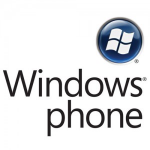
...There's no place to go but up. But up doesn't have to be an arduous climb.
That's the attitude Microsoft product managers and marketers should adopt when launching Windows Phone 7. Microsoft has been humbled by upstarts Apple and Google; from that admission comes a fresh start. Windows Mobile has already lost the major battles of the mobile phone wars. Windows Phone cannot win if Microsoft plays by the rules set by its adversaries. The company must instead engage guerilla tactics, starting by leveraging off core strengths -- and Xbox gaming and mobile Office simply aren't enough. This kind of thinking might yet pull Microsoft out of the mobile OS gutter.
A frank conversation about the futures of Apple and Microsoft

The day following blow-out Apple earnings, my attention turns to Microsoft, which announces fiscal 2010 fourth quarter and year results tomorrow. I'm not the only person thinking about Apple, Microsoft, other tech companies and the future direction of computing.
Overnight, I got an email from Mark Reschke, who clearly is a Mac fan. Reschke is excited about Apple's fiscal 2010 third quarter results, where iPad and iPhone combined accounted for nearly half of revenues. In this post I share Reschke's e-mail and my e-mail response to him.
Bing enjoys largest growth of search services, research says

Market research firm comScore released its U.S. search rankings for June 2010, and though the search business is still soundly dominated by Google, both Microsoft and Yahoo increased their market share where Google actually lost some ground.
According to comScore, Google's market share for June was 62.6 percent, down from May's 63.7 percent. Microsoft and Yahoo each increased their search shares from 12.1 to 12.7 percent and 18.3 to 18.9 percent.
Apple should NOT recall iPhone 4
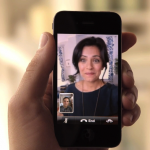
Today's Business Insider headline "Suddenly, Everyone Is Talking About An iPhone 4 Recall!" is tabloid journalism gone too far. Dan Frommer aggregates quotes from blogs or news sites demanding an iPhone 4 recall. There's no counterpoint. I'll give one: I'm not asking for a recall, so it certainly isn't everyone. What about you? Do you demand an iPhone 4 recall? (Uh-oh, my colleague Ed Oswald posted about a recall being inevitable, too. For shame!)
In late June, I posted: "12 people share their iPhone 4 Death Grip stories." These dozen iPhone 4 owners told antenna/reception stories ranging from serious problems to none. As I expressed then: "The reception problems aren't as widespread as blogs and news stories suggest" and "Most people reporting 'Death Grip' are only seeing problems in weak signal areas." The point: Not everyone is dissatisfied with iPhone 4.
New Apple FaceTime TV ads give me the creeps
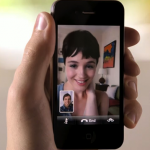
Seriously, all four new FaceTime ads creep me out. I know they're meant to be sentimental, but they're simply too real. I feel like a voyeur eavesdropping on very personal interactions. It's a place I don't belong. It's not my moment to share. Apple posted the commercials to YouTube on July 9th. I only discovered them today.
There's a veiled, backhanded compliment to my creepy feelings. As an exercise in creating intimacy between two people and showing the endearing qualities a video call has over voice, the TV commercials are enormously effective. But to my watching, there's realism, and there's realism.
I have lost confidence in Steve Ballmer's leadership
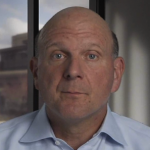
This just isn't my week for being right. On Tuesday there was confession: "I was wrong about Apple iPad." Today, I make another: I was wrong about Microsoft's CEO. Yesterday's Windows Embedded Handheld announcement shattered my remaining confidence in Steve Ballmer. About three weeks ago, I asserted: "Steve Ballmer is the right man to turn around Microsoft mobile." If yesterday's announcement is indicative of Microsoft's mobile strategy, then I was wrong. He isn't the right man, and I must now question if he should even continue leading Microsoft.
Since January, when I posted "Microsoft, don't give up on Steve Ballmer just yet," people have asked by way of Betanews comments, e-mail or Twitter how I can stand by the man, and I have been sharply criticized for the stance. Perhaps I like Ballmer's character too much. He is a rarity among corporate CEOs. Ballmer wears his heart on his sleeve. The man struggles to contain his excitement or to resist speaking his mind, despite years of media coaching. Ballmer is a "tell it like it is" kind of man, and I find the quality appealing.
Technological advances keep Intel's Atom a contender in handhelds

Intel's next-gen Atom processor-based platform (formerly "Moorestown") caused quite a stir in the news and among mobile computing aficionados. On the technical side, Intel seems to have delivered the goods. The platform includes Intel's Atom processor Z6xx Series Family (formerly "Lincroft"), the Platform Controller Hub MP20 (formerly "Langwell") and a dedicated Mixed Signal IC (MSIC) (formerly "Briertown").
It adds 3D graphics, video encode and decode, and memory and display controllers into the single system-on-chip (SoC) design. Also included are the MP20 Platform Controller Hub and a dedicated MSIC, integrating power delivery and battery charging, and consolidating a range of analog and digital components.
Avoiding the next crash: The threat from outsourcing teaching aides

Modern "American dream" stories often start with a romantic phase: A young couple struggles through graduate school, starving on measly stipends covering ramen noodles and cheap wine. Unfortunately, that story is about to disappear, following American manufacturing jobs. College professors are now outsourcing grading, The Chronicle of Higher Education reported in April.
Teaching assistants (TAs) have provided that service for generations, but now it is going overseas. Recession-hit universities get even better deals outsourcing than they did with notoriously underpaid graduate students. Now, this work often ends up in the hands of credentialed Indian stay-at-home moms eager to work part-time.
A window closes on Microsoft
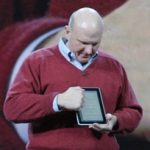
The sound you heard after HP's purchase of Palm last week was that of Windows reaching the top of the roller coaster and beginning its inevitable trip back down. Microsoft had absolutely nothing to do with the transaction, of course, but the ripple effects of the buyout foreshadow a significant shift of one of Microsoft's most stalwart partners away from its core products.
Worse for Microsoft, the HP/Palm deal shines a bright light on the software giant's seeming inability to set a course for a post-Windows world. Giants can and do get left behind if they fail to move quickly enough.
Virtualization and the cloud team up: VMware with Salesforce.com

Last week, VMware and Salesforce.com announced a new partnership around VMforce, a Platform as a Service (PaaS) offering aimed at enterprise Java developers. The companies' CEOs Paul Maritz (VMware) and Marc Benioff (Salesforce) described VMforce as an enterprise cloud designed to serve the needs of more than six million enterprise Java developers, including some two million who are using the Spring framework VMware acquired last August when it purchased SpringSource.
According to Maritz and Benioff, by harnessing the VMforce cloud, enterprises and developers can dramatically simplify Java development "without compromising the flexibility, control and choice they require." In plain English, VMforce is a for-pay service whose cloud-based elements are designed to attract Java-loving enterprises and vendors.
Recent Headlines
Most Commented Stories
BetaNews, your source for breaking tech news, reviews, and in-depth reporting since 1998.
© 1998-2025 BetaNews, Inc. All Rights Reserved. About Us - Privacy Policy - Cookie Policy - Sitemap.